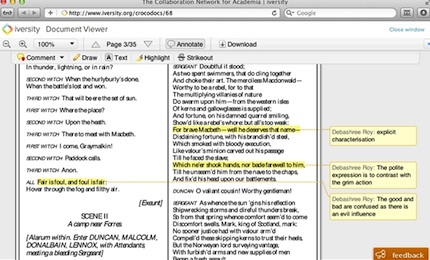The Turbulent Waters of the Course Management Systems
The CMS or LMS (course or learning management systems) world is somewhat chaotic the past few years as big commercial players like Blackboard, Desire2learn, Angel, compete, get bought out and battle in courts over patents. Add to that chaos the rise of "free" (though not without cost) open source systems like Moodle and Sakai.
And we also have offerings that are a blend of free and commercial. In late 2011, Pearson announced its own free course management system called OpenClass.
Instructure also unveiled last year Canvas, which The Chronicle of Higher Education described as a "Upstart Course-Management Provider Goes Open Source".
 Thirty universities tested Coursekit last fall (Stanford and the University of Pennsylvania included).
Thirty universities tested Coursekit last fall (Stanford and the University of Pennsylvania included). What might be unique is that the company has 80 student ambassadors to introduce the new course-management system to students at colleges across the country.
Coursekit's home page says "Make your course come alive. The simple way to manage your course and engage your students. Instructors: It's free and always will be.
an international team backed by the European Union and based out of Berlin has introduced a new, free, dual-language learning management system with a large dose of collaboration functionality built in.
And there are new international systems too. One cloud-based offering is iversity. One of their claims of uniqueness is the concept of "social reading" to go along with the features we expect. Their homepage declares that it is "The Collaboration Network for Academia - Organize courses, research groups and conferences – for free." They claim more than 12,000 students and faculty members as beta-testers from 80 colleges and universities. They also have a a team of young graduates from the United States, the United Kingdom, France, Germany, Singapore, and other countries that have rebuilt the platform to address user feedback. (iversity is now available in English and German.)
The "social reading" feature allows users to annotate PDF documents collaboratively.

The software is free to individual users, but the company can also offer customized services to institutions. In Germany the company offers a low-cost service that allows students to order printed copies of faculty-assigned reading. This project was initially funded by the German Federal Ministry of Science and Technology with additional funding coming from a regional development organization using both EU and local funds as well as a German venture capital firm.
Comments
No comments